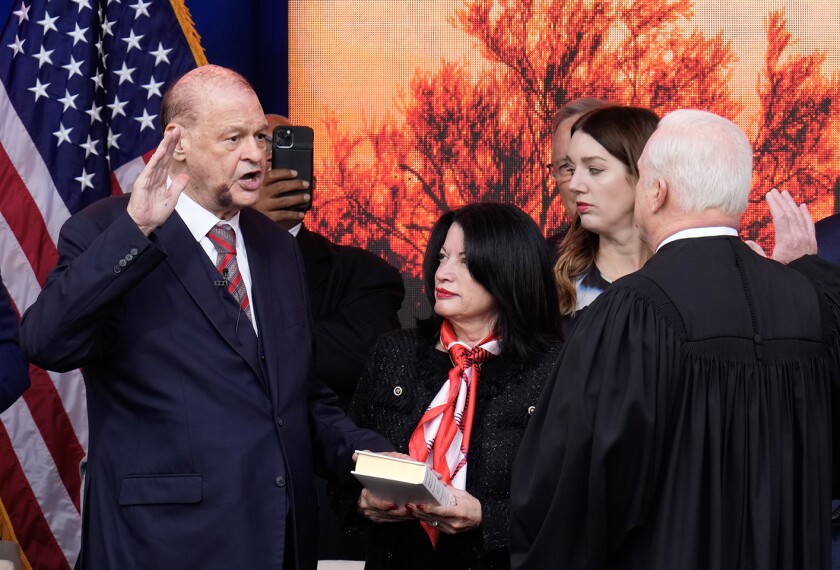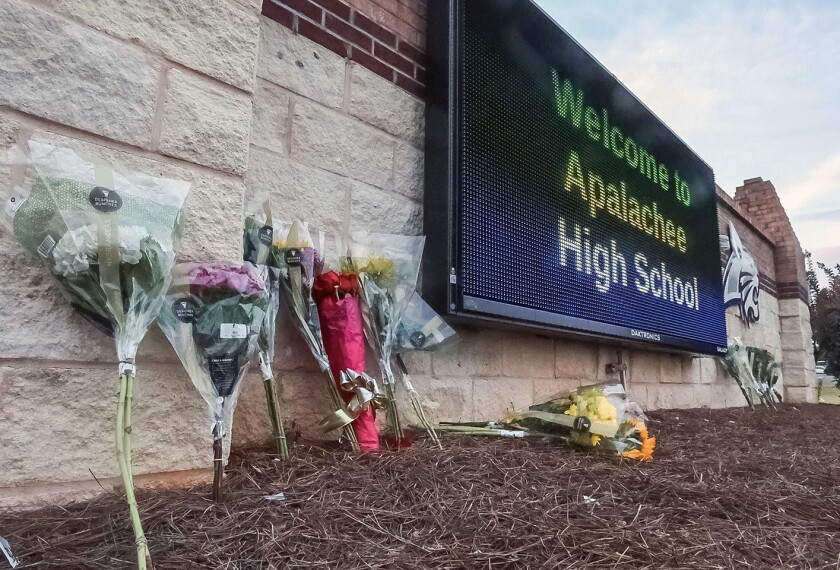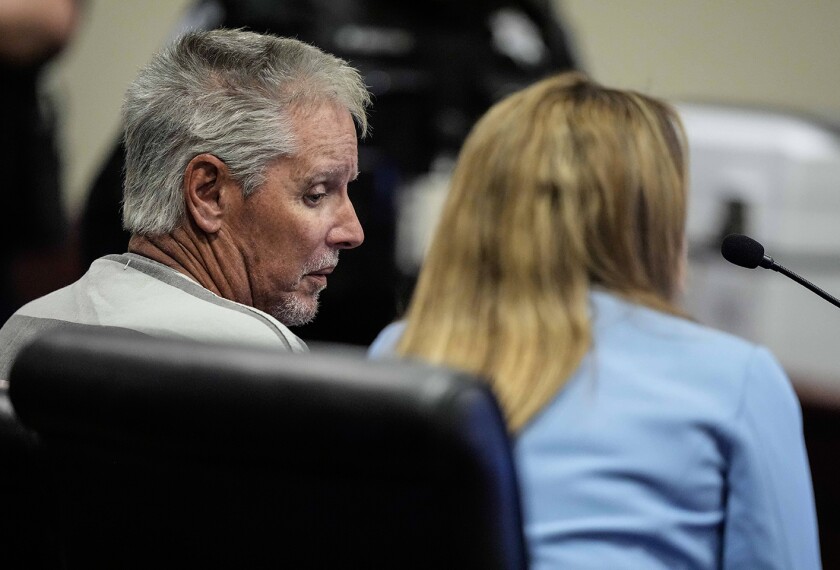In “Straight Talk with Rick and Jal,” Harvard University’s Jal Mehta and I examine the reforms and enthusiasms that permeate education. In a field full of buzzwords, our goal is simple: Tell the truth, in plain English, about what’s being proposed and what it means for students, teachers, and parents. We may be wrong and we will frequently disagree, but we’ll try to be candid and ensure that you don’t need a Ph.D. in eduspeak to understand us. Today’s topic is how educators should handle the upcoming presidential election.
—Rick
Rick: We’re in the midst of an emotionally intense election cycle. There’s a lot of discussion about how educators should navigate that. I know we both have some thoughts on this, so let’s get into it. Here’s how I tend to approach politics in the classroom. As a (long-ago) high school civics teacher and less-long-ago professor of education policy, I think it’s wholly appropriate for educators to tackle issues and elections in the classroom, when it’s instructionally relevant and professionally done. But this should be an opportunity for inquiry rather than proselytizing.
Too many influential voices in education suggest the opposite. In recent years, teachers’ union presidents, academic associations including the American Educational Research Association, and teacher-survey results have suggested that it’s OK for teaching to be explicitly political. Heck, one needn’t look too hard to find educators unabashedly urging colleagues to promote ideological and partisan agendas in their classrooms. This all reflects an enthusiasm for Paulo Freire’s dictum that “all education is political,” one that has a special hold on schools of education and a certain breed of education trainer-cum-activist.
This is a big problem for public schools and for democratic education. After all, public school classrooms are not intended to be private fiefdoms where teachers can impress their views and values upon captive students. In public schools, teachers are public employees paid with public funds. Their charge is to advance knowledge, skills, inquiry, and reflection—not to produce like-minded acolytes.
If we can step back from today’s political maelstrom for a moment, it’s clear that many aspects of schooling needn’t (and shouldn’t) be political. We don’t need to politicize debates about computation, chemistry, chorus, or coding, and I think we’d all be better off if we did our best not to.
Now, when the curriculum does warrant it, I’m all for teachers helping students make sense of the debates around gun control, criminal justice, or climate change. But that shouldn’t entail stylized bullet points or villainous strawmen. Rather, students should dig into premises, assumptions, and evidence—because that is how students master the knowledge and skills to be educated, engaged citizens. And students should be tackling issues that loom large on both sides of the ideological spectrum—which means also talking about illegal immigration, the costs as well as the benefits of climate mitigation strategies, and the causes of inflation. I’ve long been concerned that topics that are coded “right-leaning” tend to get short shrift in schools.
Anyway, that’s how I’m coming at it. I’m curious how you think about this topic.
Jal: Everyone should vote for Tim Walz: Midwestern dad, teacher, coach—the man can do it all. Isn’t that obvious by now?
In all seriousness, I agree with your central premise: It isn’t the teacher’s role to indoctrinate students in their political ideology but rather to teach them how to think for themselves. Perhaps the most important mark of an educated person is that they can take in information, evaluate it, and offer their own view that is informed by history, context, and values. To do that requires considerable practice at thinking critically and defending one’s ideas and arguments.
While the media tends to seize on the most extreme cases of teachers’ indoctrinating students, in my experience, the greater risk is that teachers and schools shy away from any discussion of politics at all. In today’s political climate, many teachers fear what can happen if they are perceived as countering the local political winds, as even one angry parent’s complaints can get a teacher fired. Public schools, as democratic institutions with students and parents of different views, have long recognized that discussions of politics can be dangerous. This has only been heightened in recent years as politicians on the right have put schools in the crosshairs around everything from critical race theory to transgendered bathrooms.
In such a climate, there is an important difference between picking a political side—Democratic or Republican—and standing for certain values. Schools shouldn’t do the former, but they can and should do the latter. Schools have no choice but to be guided by values, so they should make these values explicit and be clear about what they stand for and what they think students need to succeed. The issue of gay rights, in particular, brings this question to the fore—as a political issue, it can be contested, but as a school matter, schools have a responsibility to ensure that all of their students feel safe and valued in order for them to learn. These values can provide a firm ground for teachers and principals to stand on if challenged by parents for political bias or overstepping their role.
Rick: I think you’re right that many practitioners are reluctant to talk about this stuff, but I don’t think that’s inconsistent with the drumbeat of calls for politicized instruction that I linked above. What’s going on? A lot of ed. school faculty, activists, and teacher influencers have rejected the idea that there’s anything wrong with teachers behaving like political actors—so long as they’re coming at hot-button issues the “correct” way. And some smallish number of practitioners have gotten on board, resulting in troubling footage that goes viral on Libs of TikTok. In red and purple states, this has infuriated a big chunk of the public and its elected officials. That’s fueled a pretty intense backlash. The vast majority of classroom educators have been trapped in the middle. They’re leery of all the back-and-forth. What’s worse is that (because I fear a lot of teacher educators and trainers have dismissed public concerns as unserious) practitioners don’t get a lot of guidance on how to responsibly navigate these topics or the resulting tensions.
Now, you say that “Politicians on the right have put schools in the crosshairs” as they’ve responded to the concerns that have emerged. I see things very differently. As I noted, public educators are public employees who are overseen by public officials. Well, when some schools started to teach that “hard work” is a problematic legacy of “white supremacy culture,” segregate students in “racial affinity groups,” or use instructional materials that hold that the U.S. is “systematically racist,” many parents and policymakers were troubled. They responded in the way democratic citizens are supposed to: They called for school boards and elected officials to clarify curricular and instructional guidelines. When officials weren’t responsive, they tried to elect officials who were.
I don’t see any of that as either inappropriate or as “putting schools in the crosshairs.” I see it as democratic governance at work. Now, some may wonder why it’s OK for far-off politicians to set guidelines when it’s the classroom educators who do the work. It’s a fair question. But there’s a simple answer: It’s the same one that we offer to cops who wonder why politicians get to tell them they have to wear body cameras and can’t use stop-and-frisk tactics. It’s because public servants are obliged to respect the judgment of the democratically elected public officials whom voters have empowered to write laws, spend public funds, and oversee public employees. When cops or teachers don’t like the decisions, of course, they’re free to try to persuade those officials or to vote them out at the ballot box.
Jal: I think where the practice of democratic governance departs from the theory of democratic governance is when politicians whose records show very little concern with schools start using them as a place to score political points. For instance, there is little to no evidence that “critical race theory” was being taught almost anywhere in K–12 schools, and yet it became a huge political talking point because one side saw electoral advantage in centering it. So while you are right that in public schools the ultimate authority lies with the elected officials and not the teachers, I also think it is fair for teachers to be angry when those elected officials show little interest in schools except when there is political hay to be made.
Much of this connects to an argument I’ve been making since The Allure of Order; namely, that given that teaching failed to crystallize as a full-fledged profession—e.g., expert knowledge, social closure, selective recruiting, decent pay, and all the rest—means that teachers have very little ability to collectively shape the core aspects of their work. This contrasts with other fields: For instance, a new head of a hospital can make decisions about finances and strategy, but she doesn’t change the actual procedures of surgery. Meanwhile, new superintendents can and do change how teachers teach reading or math, or even what subjects are offered in schools. There is very little established “technical core” that is impervious to lay control. The result is that schools swing to and fro in the wind, which frustrates teachers and makes it very difficult to have sustained, long-term improvement.
To return to the topic at hand, my answer to how teachers should handle the election is educationally—in other words, use it as an opportunity to discuss salient issues, develop political empathy, think critically, and help students figure out what they stand for and why. But do so in a way that is consistent with the values needed for learning, particularly by creating a space where people of all views and identities feel like they can participate and thrive.
Disclaimer: The copyright of this article belongs to the original author. Reposting this article is solely for the purpose of information dissemination and does not constitute any investment advice. If there is any infringement, please contact us immediately. We will make corrections or deletions as necessary. Thank you.






